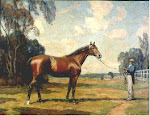 I finished this novel in less than two days. Just could not stop reading, stayed up late at night hurriedly turning pages, and I don't usually do that anymore.
I finished this novel in less than two days. Just could not stop reading, stayed up late at night hurriedly turning pages, and I don't usually do that anymore.Set in the Amish country of Ohio during the winter, I got pulled in immediately by the incredibly horrific murder of a young woman. With the discovery of a mutilated body in a cow pasture on a country road, the crime rapidly involves not only local police chief Kate Burkholder, but the entire small community of Painters Mill. The similiarities of the death reminds everyone of a series of murders that occurred locally 16 years earlier by the Slaughterhouse Killer, tremendously brutal incidents that the killer was never brought to justice for. Kate, who survived the terror and ran away from her Amish life to eventually become part of the criminal justice system and return to town as police chief, has a dark secret that involves those murders and the killer. With this new murder, and each one that follows, Kate begins to doubt the events that happened the summer she was fourteen, events that had damaged her whole family and sent her out into the "English" world.
With only a small police force at her disposal, Kate discovers that she has huge challenges in finding out the truth of the killings, and that there are those who don't believe she is capable of handling the situation, including her own family. As the search broadens and more people become involved, Kate realizes it's only a matter of time before old secrets come home to roost, so she works quickly to discover the truth of these crimes. Help is brought in by members of the town council, several of whom have grudges against Kate. One of these outside cops is John Tomasetti, with the Ohio Bureau of Criminal Investigation and Identification, a rogue cop with disturbing issues of his own, so overwhelmingly bad that the OBCI is hoping this case will destroy him. Chemistry soon flares between himself and Kate, but although he is attracted to her, he has questions about what she's hiding. And Kate herself wonders if she can trust him? Tomasetti questions her motives and begins some digging on his own. But in a town terror-struck by a serial killer with a penchant for torture and mutilation, getting too close may not be an option for Kate and John. Who is he? What does he want? And why is he back after so long an absence? When Kate is terminated from her position, the game changes and stakes rise. An arrest is made, damning evidence is found, but it doesn't add up in Kate's mind, and her convictions lead her down a dark and frightening trail from which she may not escape.
Castillo's novel is compelling, taut, intense, chilling, with horribly brutal descriptions and a lightning fast pace. Rapid-fire dialogue, well crafted scenes, a puzzling mystery, a couple of characters the reader cares about, and a truly edge of the seat climax adds up to a satisfying suspense thriller, the first of a series featuring Kate Burkholder. An excellent summer read.

